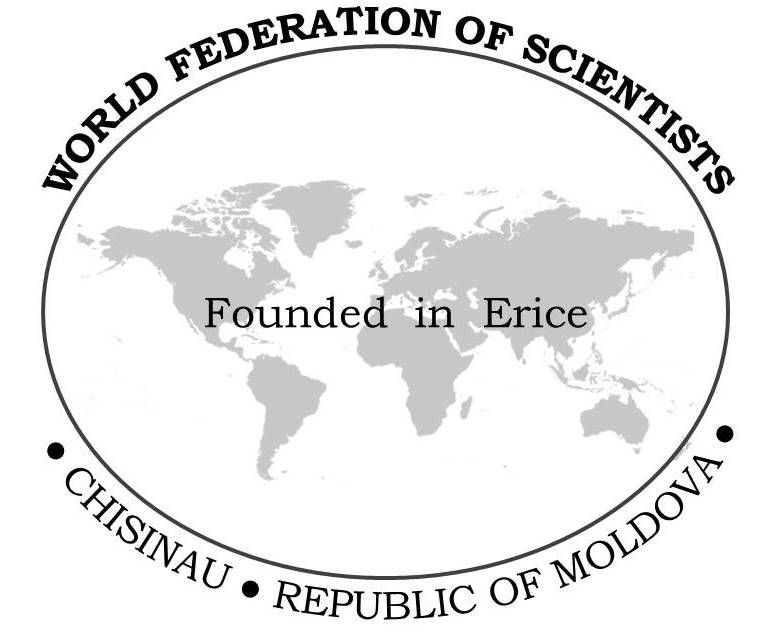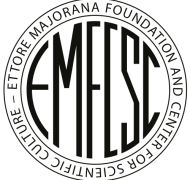- 108 vizualizări
ETTORE MAJORANA FOUNDATION AND CENTRE FOR SCIENTIFIC CULTURE ets
INTERNATIONAL SEMINARS ON PLANETARY EMERGENCIES
56TH SESSION: CHAIRMAN: A. ZICHICHI - CO-CHAIRMAN: C. GALBIATI ERICE: 8 – 14 August 2024
PRESS RELEASE
The 56th session of Planetary Emergencies has concluded in Erice. For four days, 100 scientists and experts gathered in the Dirac Hall of the Ettore Majorana Foundation, founded by Professor Antonino Zichichi, in order to present the results of their research. Among the topics discussed this year was the issue of wildfires, that are becoming increasingly devastating and spreading all over the world.
Four intense days of presentations and debates took place, with rigorous discussions and shared conclusions. The agenda included topics of fundamental importance for all the citizens of the world. From the water crisis which is affecting the entire planet, and which is urging us to use this essential resource in an effective way, to the return of military nuclear power, which presents even greater challenges today than 40 years ago. Unlike then, there is an openly manifested aggression and limited diplomatic mediations between East and West, that make crucial matters more complicated.
Furthermore, there were discussions about artificial intelligence, the technology which is feared but if properly deployed, for example, in the medical field, would allow to have significant results in patient care. In the field of new technologies, the security of personal data was also discussed. In the health field during Planetary Emergencies, ample space was given to studies related to future possible pandemics, how to prevent and potentially treat them, and research on emerging/re-emerging infections and neuronal diseases.
Another debated issue was the effect of bombs deployed during wars and the subsequent contamination, both medical and psychological, for children and future generations, affecting the civilians from both the attacking and the attacked nations. In the future, these populations will share a land which is going to remain contaminated for a long time. This is another reason for unity in searching peace for countries at war.
Another problem to confront is the risk of a future meteorite which would make no distinction between nations and populations, possibly exterminating them. This is another project that could unite nations with a common interest to eliminate any such risk to our planet Earth.
An issue that gathered great interest, also due to the direct involvement of the territory hosting the Seminars, was the new topic introduced this year for the first time: the wildfires. Increasingly devastating, for example, the wildfires affecting large areas in Greece are currently making the news headlines worldwide. The wildfires are literally changing the landscape with an ever-increasing pace and violence. The economic costs and, more importantly, the loss of lives compel us to focus on in-depth studies and specific research on this issue.
This work has led to a fire prevention pilot project that will be implemented in Erice, based on the use of advanced technology, focusing on wildfires' prevention.
The 56th Session of Planetary Emergencies program addresses the vital issues that affect people’s lives and the relationship between the humanity and the planet we inhabit. The world’s best scientists and researchers from all continents came together to continue the idea that inspired Professor Antonino Zichichi when in the 1980s during the Cold War, he called the scientific advisors of the world’s most powerful leaders and the scientific community to the Ettore Majorana Foundation and Centre for Scientific Culture in Erice with the sole aim of promoting peace and collaboration.
Fabrizio Zichichi, responsible for the Emergencies organization, commented on this aspect: “I am particularly pleased to see that the spirit that guided my father and his fellow scientists 40 years ago continues to find fertile ground among the participants. It is a combination of those who have been coming for years, thus providing historical memory, and those who are here for the first time, bringing new perspectives to these Emergency Sessions, always in the spirit of science serving humanity and not specific nations.”
Many participants played a very important role during these days, but a special mention must go to Professors William Barletta, from the Department of Physics at the Massachusetts Institute of Technology, Cambridge, MA, USA, and Carmine Difiglio, from the Faculty of Engineering and Natural Sciences at Sabanci University in Istanbul, Turkey, who worked extensively for this edition of Planetary Emergencies. It is worth noting that the “Permanent Monitoring Panels” meet regularly throughout the year, conducting scientific and technical studies that are eventually presented here in Erice.
This year, for the second time, the final day, dedicated to conclusions, was open to the public. Confirming the interest already shown last year when scientists opened their doors for the first time to review these conclusions, the public came and participated in large numbers, with apparently great interest.
Professor Cristian Galbiati, from the Physics Department at Princeton University, Princeton, NJ, USA, the Co-Chairman of Planetary Emergencies said at the closing of the Seminars: “This is the second edition held in person after the disastrous stop imposed by Covid, when we were forced to interrupt this very important research laboratory, that is Planetary Emergencies”.
“Based on the data…”, he continued, “…we are back on track, with over 100 scientists gathered here at the Ettore Majorana Foundation in Erice from all continents to discuss studies and research conducted with the utmost scientific rigor.”
Finally, Galbiati and Zichichi wished to sincerely thank all the Chairmen of the various Sessions discussed here, Professors Franco Maria Buonaguro, Professor Emeritus of the Istituto Nazionale dei Tumori Fond (National Cancer Institute Foundation). Pascale of Naples, Axel Lehmann, Professor at the Institute for Technical Computer Science, University of Munich, Germany, Lorne Everett, Chancellor Emeritus of Lakehead University, Canada, and L. Everett & Associates LLC, Santa Barbara, CA, USA, Stefano Parmigiani, Professor Emeritus at the University of Parma, and Frederick S. Vom Saal, Professor Emeritus at the University of Missouri, Columbia, MO, USA.
The results of this 56th Session of Planetary Emergencies will be published in the coming months which may be useful to states and organizations to protect the interests of their constituents. And from tomorrow, work begins on the 57th edition of Planetary Emergencies, which could be even more crucial.

